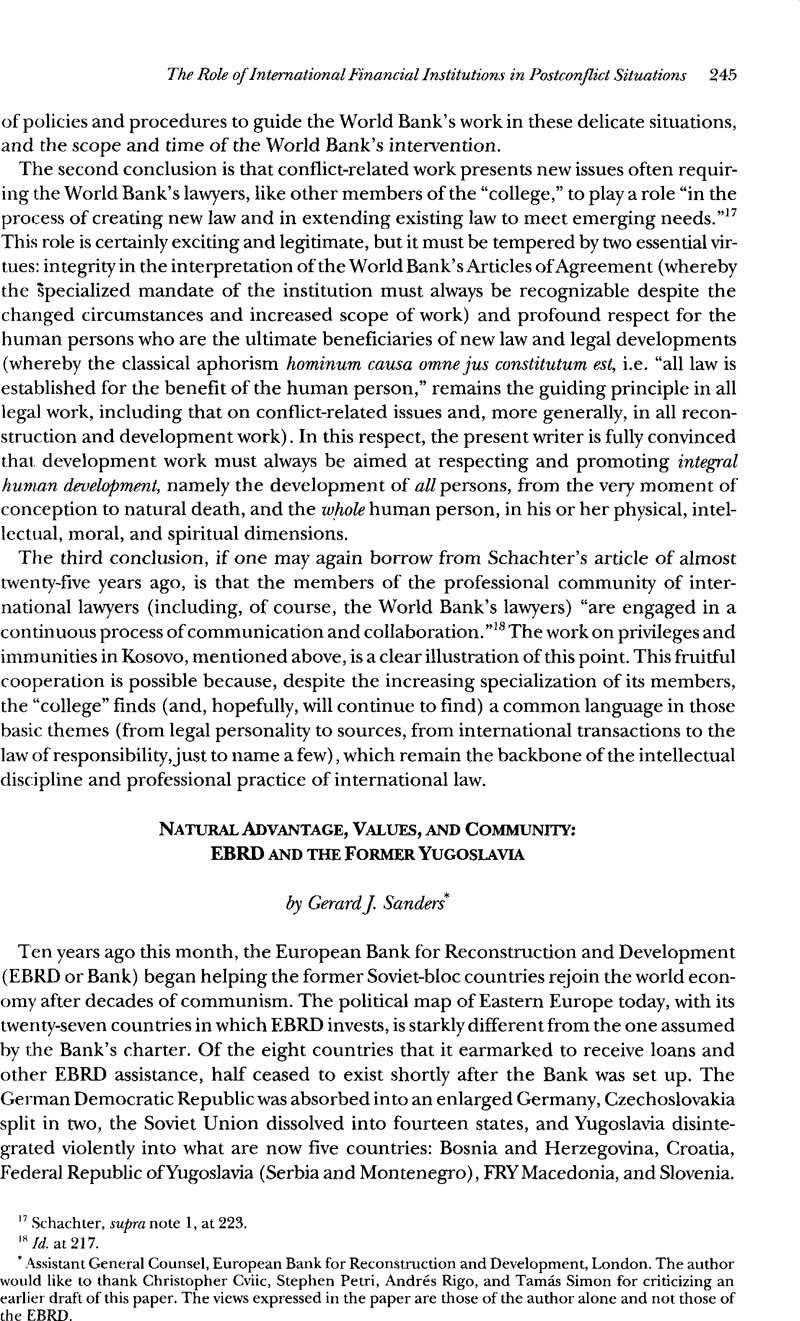No CrossRef data available.
Article contents
Natural Advantage, Values, and Community: EBRD and the Former Yugoslavia
Published online by Cambridge University Press: 28 February 2017
Abstract

- Type
- The Role of International Financial Institutions in Postconflict Situations
- Information
- Copyright
- Copyright © American Society of International Law 2001
References
1 Marx, Karl & Engels, Frederick, The Communist Manifesto 29 (Beer, Samuel H. ed., Appleton-Century-Crofts 1955) (1848)Google Scholar.
2 Chris Cviic, Remaking the Balkans 4 (rev. ed. 1995).
3 Id. at 61.
4 Bildt, Carl, A Second Chance in the Balkans, 80 Foreign Aff. 148 (2001)CrossRefGoogle Scholar.
5 Agreement Establishing the European Bank for Reconstruction and Development, May 29, 1990, Art. 8(2), 29 ILM 1077 (1990) [hereinafter EBRD Agreement].
6 Id. Art. 1.
7 Under Article 8(2) of the EBRD Agreement, the Bank “may conduct its operations in countries from Central and Eastern Europe which are proceeding steadily in the transition towards market-oriented economies and the promotion of private and entrepreneurial initiative, and which apply, by concrete steps and otherwise, the principles as set forth in Article 1 of this Agreement.” Id., Art. 8(2). Those principles are multiparty democracy, pluralism, and market economics.
9 See EBRD, Political Aspects of the Mandate of the EBRD, (1992) (unpublished manuscript), and EBRD, Political Aspects of the Mandate of the EBRD in Relation to Ethnic Minorities (1992) (unpublished manuscript).
9 The constitution of Bosnia and Herzegovina, with its extensive guarantees of protections, offers the most comforting words although they are belied by the presence of large numbers of internally displaced ethnic refugees.
10 EBRD Agreement, supra note 5, at Fourth Recital.
11 Misha Glenny, The Balkans 1804-1999: Nationalism, War and the Great Powers 24 (2000).
12 Delaey, Francis, Bosnia and Herzegovina ‘s Continuing Struggle: Legal and Institutional Challenges in the Post-Dayton Era, Law in Transition (Eur. Bank Reconstr. & Dev., London), Spring 2001, at 11 Google Scholar.
13 Franck, Thomas M., Are Human Rights Universal? 80 Foreign Aff. 191 (2001)CrossRefGoogle Scholar.




